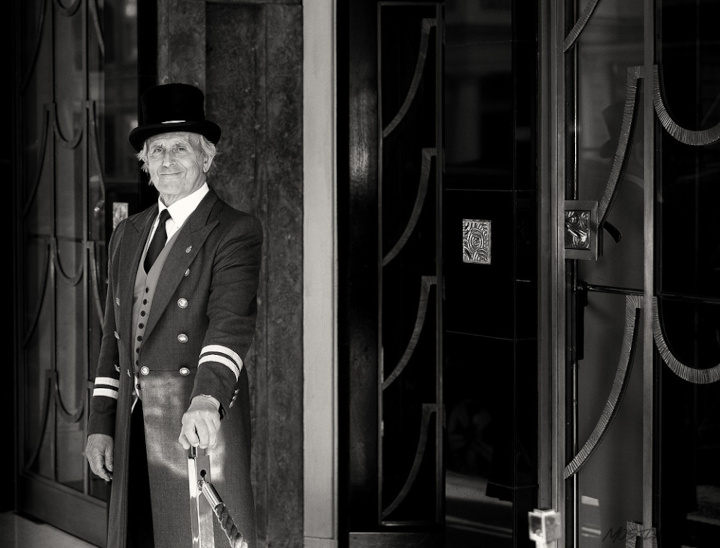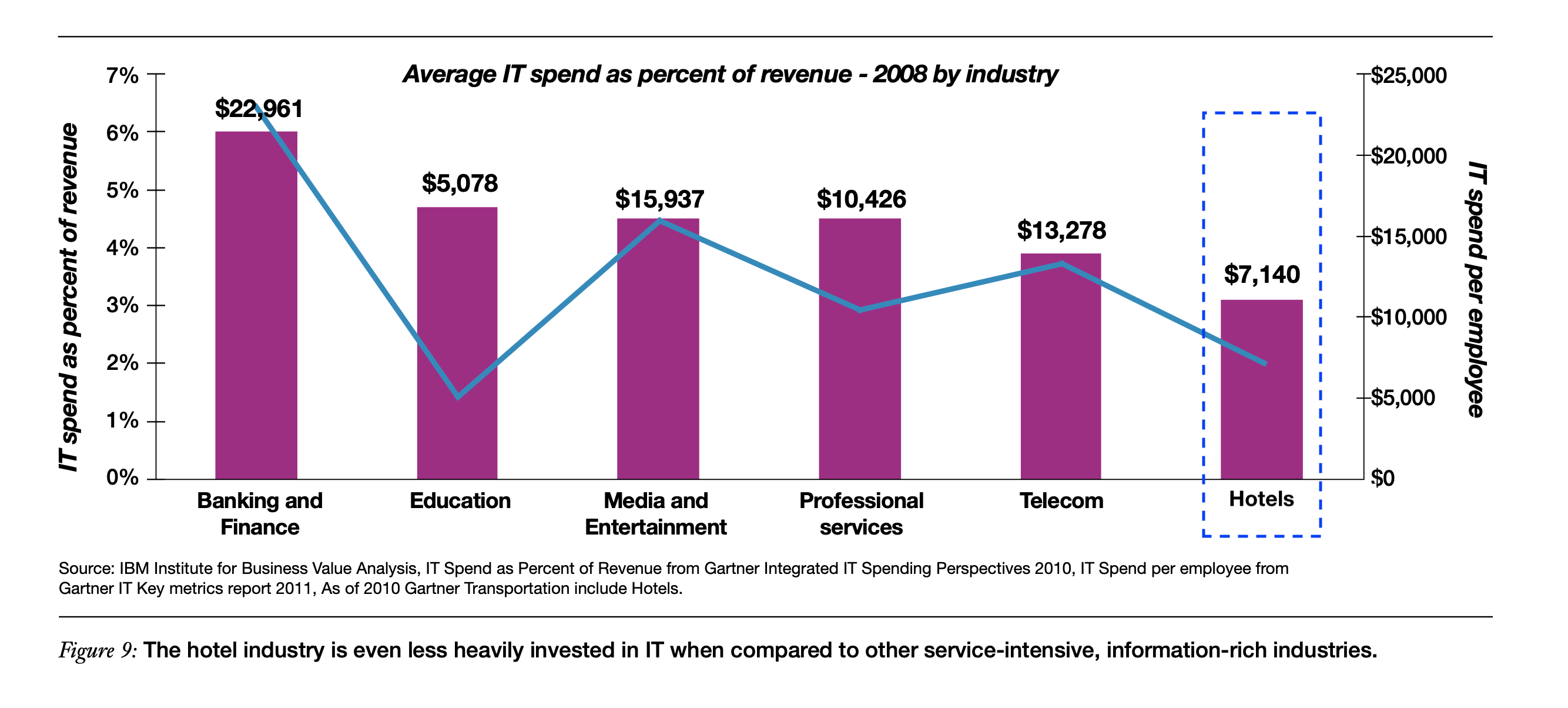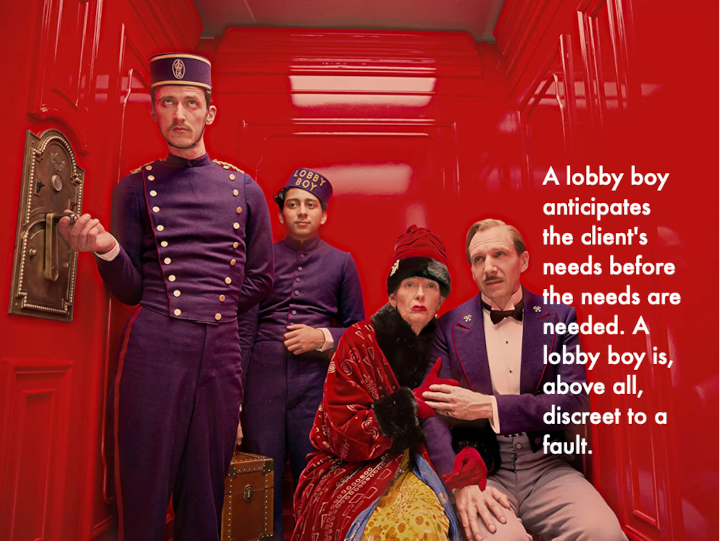Data Activation: How To Recapture the Magic of Hospitality
July 29, 2020
July 29, 2020
No two guests are alike. For over thirty odd years as head doorman at Claridge’s London, Roman Proboziack has greeted rockstars and royalty. He makes it a rule to catch the eye of, and smile at, everyone who comes into or leaves the hotel, regardless of who they are. He speaks of his genuine enthusiasm for people, treating every individual he comes into contact with as if they’re a VIP. To Roman, everyone is special.

Our most memorable guest experiences are often defined by individuals who go out of their way to help us, who remember what we like, what we’re allergic to, they attend to every detail and anticipate what we want, without us having to say a word. These are the experiences we remember.
The challenge for hotels, is repeating this level of service for every guest, at every opportunity, without exception. Is this even possible?
A peek behind the magic curtain
In reality, as any hotelier will know, fairytale luxury experiences take meticulous planning. At the Claridge’s, for instance, the level of detail that goes into guest preparations is extraordinary, dossiers are compiled on individual guests with every preference accounted for.
Here in Hong Kong, I know of hotels that spend up to three hours prior to the arrival of a VIP guest, just on staff briefings. With suites accounting for less than 10% of total hotel rooms, it’s easy to see how hotels might not be able to replicate this level of attention for every guest.
There’s also the challenge of staff experience and retention — Roman Proboziack are a rarity in the hotel industry today. On average, hotel staff stay in their roles for 8-12 months with some variance depending on seniority and location. Which means that when loyal guests pay a hotel a visit a year from today, they might be greeted by a completely different set of people, and the valuable opportunity to create and maintain a personal relationship is lost.
This isn’t to say hotel staff aren’t doing their very best. I’ve been told of how front office employees spend additional time after their shifts simply reporting and relaying information to next shift. Managing guest information is not their job, their job is to offer an outstanding guest experience, establishing an authentic one-on-one relationship with the people in front of them. Technology must step in — to ease the burden, and help staff operate at peak efficiency.
Staff training and retention are significant costs — technology can help ease the pressure
39%
of front of house staff leave within the first 90 days
33 — 50%
labour costs are a large proportion of hotel operating expense
42%
hotel employees leave due to a stressful work environment
Data, data everywhere — and nothing we’re doing with it
What’s interesting of course, is that hotels do in fact capture data from a host of channels — the property management system (PMS), point of sale (POS), chatbots, customer relationship management (CRM), loyalty programmes, online travel agencies (OTAs), social media sites — terabytes of valuable data brimming with insights, but most hotels are unable to access, activate or monetise this in a timely fashion. A san exapple, in a 300-room hotel, there are up to 2,000 new pieces of information everyday that staff need to input, retrieve and manage.
Most of us have probably had the experience of walking up to a restaurant and waiting while staff pull up our room number and personal information. If we’re regular guests they’ll know our favourite table, our favourite wine, they’ll be able to make personalised recommendations to match our tastes. But if we’re waiting for this at the host’s desk, it’s already too late.
For a truly exceptional experience, data and predictive insights should be accessible to staff before guests approach the restaurant. Technology should anticipate behaviour, and operate invisibly and swiftly — because guests today have come to expect a level of personalisation from their banks, from their online merchants, from their favourite brands and stores, and hotels (especially luxury ones) shouldn’t come up short.
Fixing the gap between data and actionable insights… to meet rising guest expectations
Hotels today already generate and gather more data than ever before. Extracting value from this volume of data manually is impossible, and without the right technology, extremely time-consuming. At this point, we know captured data becomes a huge burden for hoteliers who don’t know what to do with it.
Under-utilised data has a direct impact on the bottom line. It has direct costs in terms of staff stress and turnover, customer satisfaction, and brand image. It means budget spent on property management systems and softwares aren’t fully realised because of the gap between data gathered and data utilised. It costs hotels millions not to activate this data.
What Hotel Guests Want
More personalised, more unique, more consistent86%
Personalisation plays a role in purchase decisions
↑ 6 to 10%
revenue increases by integrating data and advanced technologies to create personalisation
89%
Value consistency in hotel stays
↓ 50%
reduction in customer acquisition costs
Data snacks: Bite sized analytics and insights — so staff can act on it
Every hotel gathers massive amounts of data. It is what they do with that data that gives them a competitive edge.
Hotels today need to move a step beyond property management systems to extract actionable insights from their data. Often, when presenting Gaia, some hoteliers think we are another software to manage data, and I explain that we are a tool to activate data. We activate data from multiple sources and we use a tag on the room key to pull up relevant insights when a guest approaches.
The system is more powerful than this, because it can pull up insights for guests who match a similar profile based on indications like age, gender and purchase preferences. For first time guests, hotel staff are able to offer predictive services based on data gathered from previous customers. They can propose a relevant offering at the bar or the restaurant. A data-driven, people-first approach can help brands find opportunities and appear at the right moments of influence.
Hotel brands that care move beyond PMS to put actionable insights in the hands of frontline hotel staff. Staff receive simple alerts on their smartphones enabling them to anticipate what a particular guest might want from their stay — their favourite restaurant meals, or spa treatments or well chosen local adventures. Great service drives loyalty in a positive feedback loop. And great insights are key to great service. We know where to begin.
Hotels spend less on technology than other service-intensive, information-rich industries

Truly personalised experiences, and not just for VIPs
You’re probably familiar with The Four Seasons guest ethos — ‘get it right', ‘get me right' and ‘wow me if you can’. In the case of one guest this meant that staff welcomed him with a coconut on arrival, and the guest was so happy, and so touched that the hotel had remembered his preferences after such a long time.
For most brands, it’s the ‘wow me if you can’ moments that create an emotional connection. Personalisation is luxury. Giving customers what they want, when they want it, and how they want it… before they’ve actually asked for it.
It’s possible to achieve wow moments at scale. But we have to leverage data and technology, and we have to put this data in an intuitive “snack-able” format in the hands of all staff. So even the newest and junior most members have access to the same level of insights as veterans.
Roman Proboziack may be one in a million, but with a little help from technology, it’s possible to create the experience for every single guest, every single time. So staff feel empowered to connect with the guests right in front of them — well prepared and with a smile. And guests will remember the difference.

References:
Image Credit: Explore Blipfoto Gallery by Pixelstate
8 Causes of Employee Turnover in Hospitality
Average length of time employees stay in the hotel industry in the United States in 2014, by compensation type
Profiting from Personalisation
Video/Image Credit: The Grand Budapest Hotel (2014)